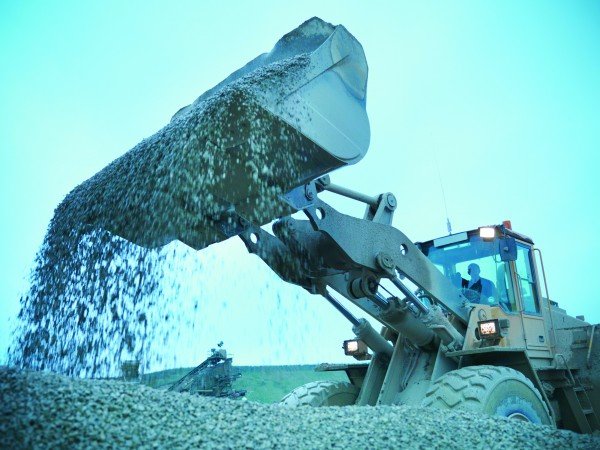 The Quarry Partnership Team works to reduce the risk of quarry workers developing lung disease by raising awareness of the health risks, improving workers knowledge of dust and promoting good working practices. Marie Warburton reports
The Quarry Partnership Team works to reduce the risk of quarry workers developing lung disease by raising awareness of the health risks, improving workers knowledge of dust and promoting good working practices. Marie Warburton reports
Silica is a natural mineral present in varying amounts in materials such as sand, sandstone and granite. When these materials are crushed or abraded during quarrying and associated mineral processing activities, very fine airborne dusts may be generated, including respirable crystalline silica (RCS), which is recognised as a significant cause of silicosis and other lung diseases.
Quarrying is a complex, high energy industry with many opportunities for airborne dust, including RCS, to be created and it is important to apply dust control measures to prevent or minimise exposure wherever possible.
Everyone involved in quarrying has a role to play in reducing exposure to dust and so the Quarries Partnership Team (QPT) was set up to bring together key stakeholders from industry, HSE, trade associations, trade unions and training providers to work with one another to achieve this goal.
The QPT aim is to reduce the risk of quarry workers developing lung disease by raising awareness of the health risks, improving workers knowledge of dust and promoting good working practices.
The team’s scope includes:
- Focussing on exposure to workplace dust regardless of its mineral content.
- Identifying and working with those in the quarrying industry who are best placed to promote successfully key messages on controlling and reducing dust exposure.
- Developing ideas, planning and delivering activities to improve both employers and employees’ knowledge about exposure to dust and to share, promote and encourage good working practices,
Martin Isles, health and safety special adviser to the Mineral Products Association said: “The QPT is a shining example of willing practical co-operation between a broad range of stakeholders in addressing one of the quarrying industry’s key occupational health issues.”
Over the last few years QPT members have successfully worked together to identify and agree key issues, prioritise areas for action and develop tools and materials to raise awareness and change behaviours. Individually, QPT members also host roadshows, safety days and run internal training sessions to encourage a change in how dust generating activities are dealt with at all levels.
The resources produced so far by the QPT and its members include posters, leaflets, a toolbox talk ‘Dust – Are you in control?’ and RCS guidance on controlling workplace dust. All of these, together with other useful resources, can be found on the QPT homepage which is hosted by the Mineral Products Association (MPA) on its safequarry website.
The QPT also commissioned the production of an award-winning animated film ‘Stop dust before it stops you’ to highlight the long-term health risks that can be caused by inhaling dust and to show quarry workers how they can protect themselves.
The short film tells the story of an animated character, George, who ignores advice and is exposed to hazardous workplace dust. George’s story is intercut with real-life footage that guides workers on the simple steps they can take to prevent their exposure to dust. With a little touch of humour, the film demonstrates, in a new and engaging way, how simple changes in behaviour when performing high-risk activities can control and reduce exposure and encourages workers to think again about the way they work.
The film has been used as a training aid by many organisations across the industry, and won the prestigious occupational health and wellbeing award at the 2014 MPA annual health and safety awards. It can be viewed online at: https://www.youtube.com/watch?v=sWLPMgpMQCU&feature=youtu.be
The key message for supervisors, managers and workers in quarries is to focus on improving their understanding and the management of dust in the workplace and to……… ‘STOP dust before it stops you!’
http://www.safequarry.com/qpt.aspx
For more information on the QPT resources or to get involved in its work: contact: [email protected]
Marie Warburton is HSE QPT manager
What makes us susceptible to burnout?
In this episode of the Safety & Health Podcast, ‘Burnout, stress and being human’, Heather Beach is joined by Stacy Thomson to discuss burnout, perfectionism and how to deal with burnout as an individual, as management and as an organisation.
We provide an insight on how to tackle burnout and why mental health is such a taboo subject, particularly in the workplace.



Considering the high number of respiratory conditions we’ve seen in the recent HSE annual report and specifically the “170 other pneumoconiosis deaths, mostly due to coal dust with a smaller number due to silica”, it’s essential that employers take steps to protect their workforce through information campaigns like this and practical intervention such as having the right safety equipment and the right company mindset to promote safe working.